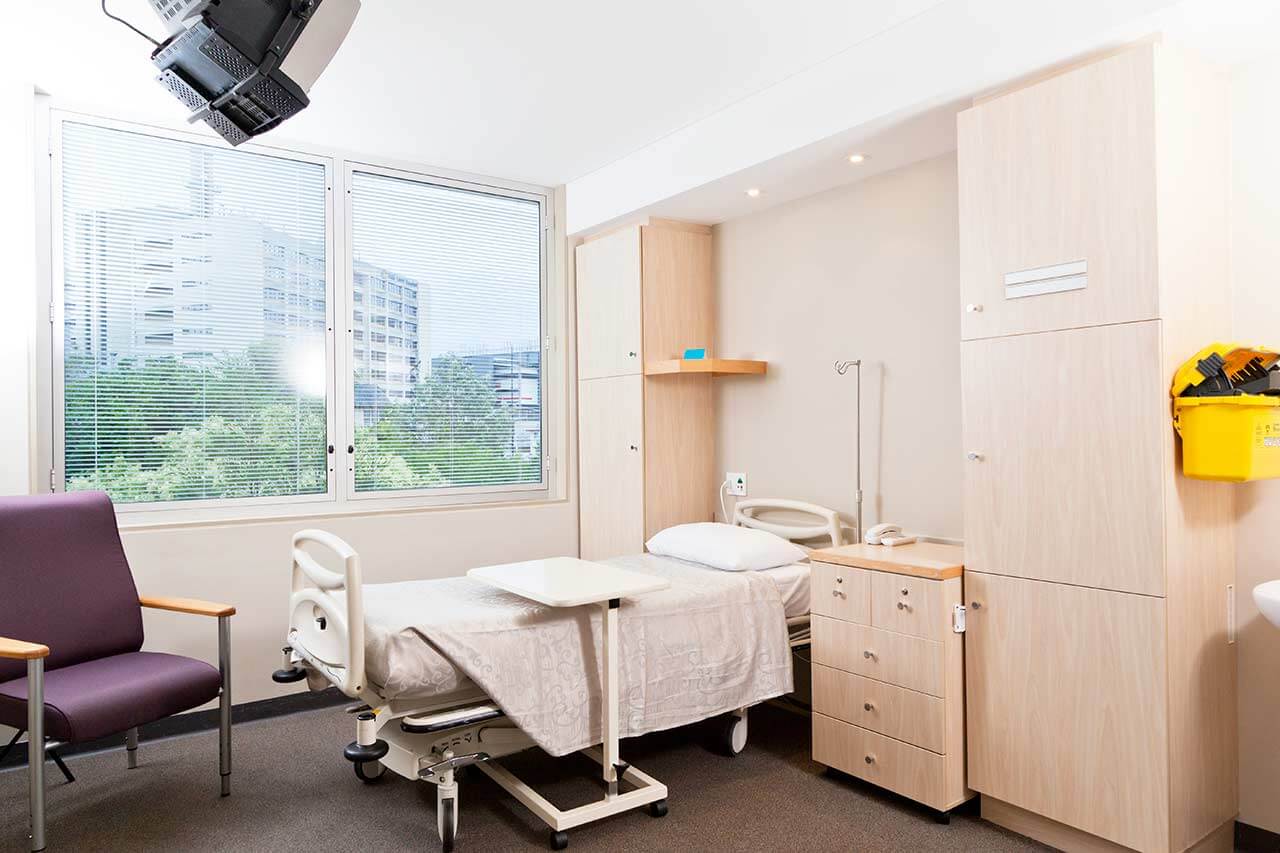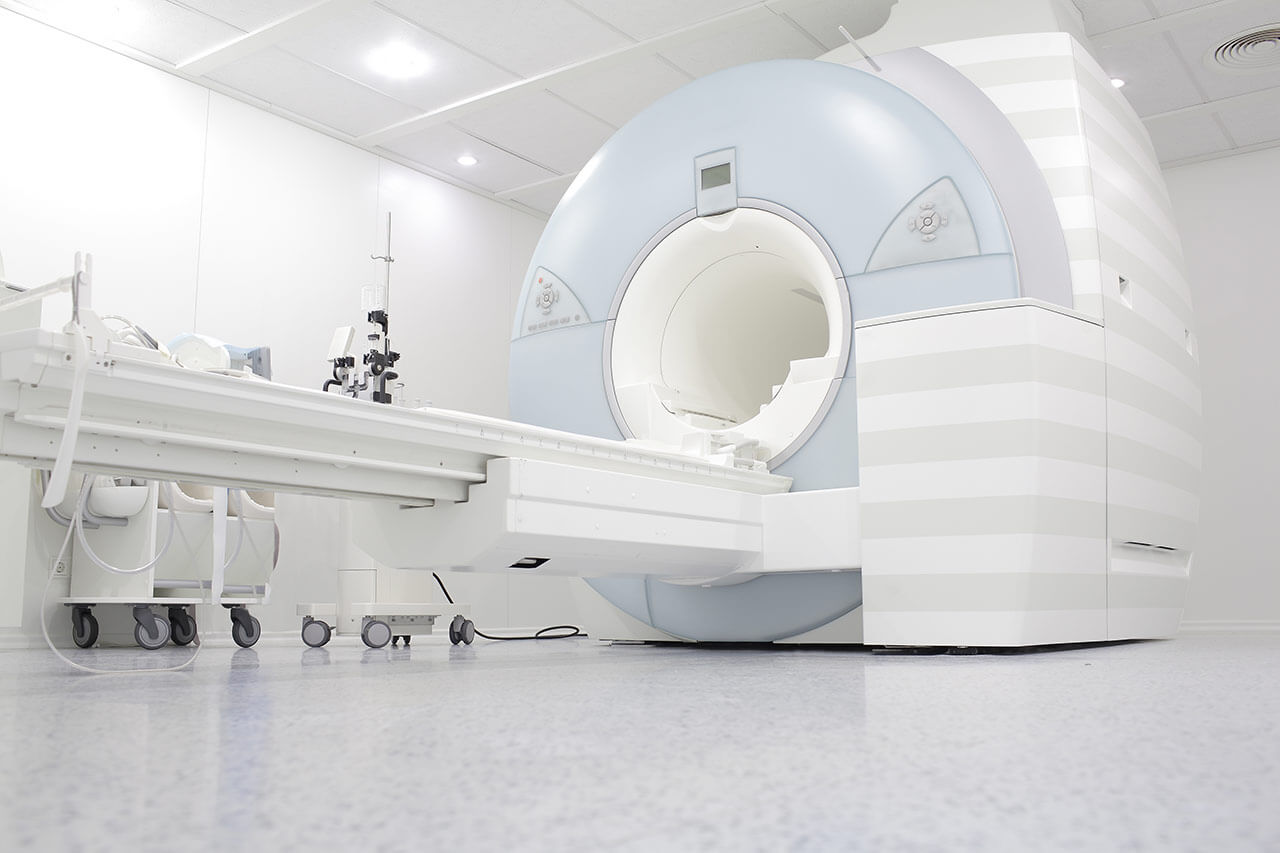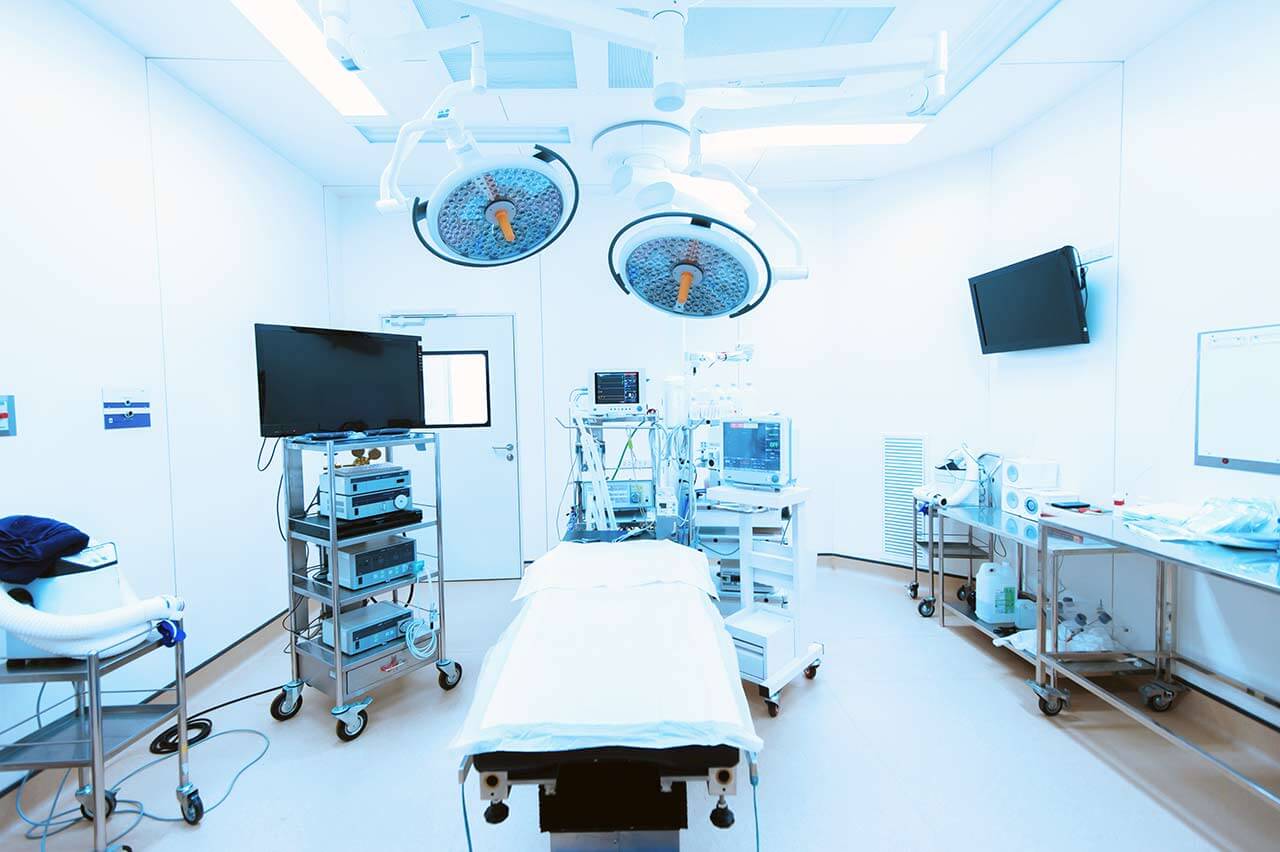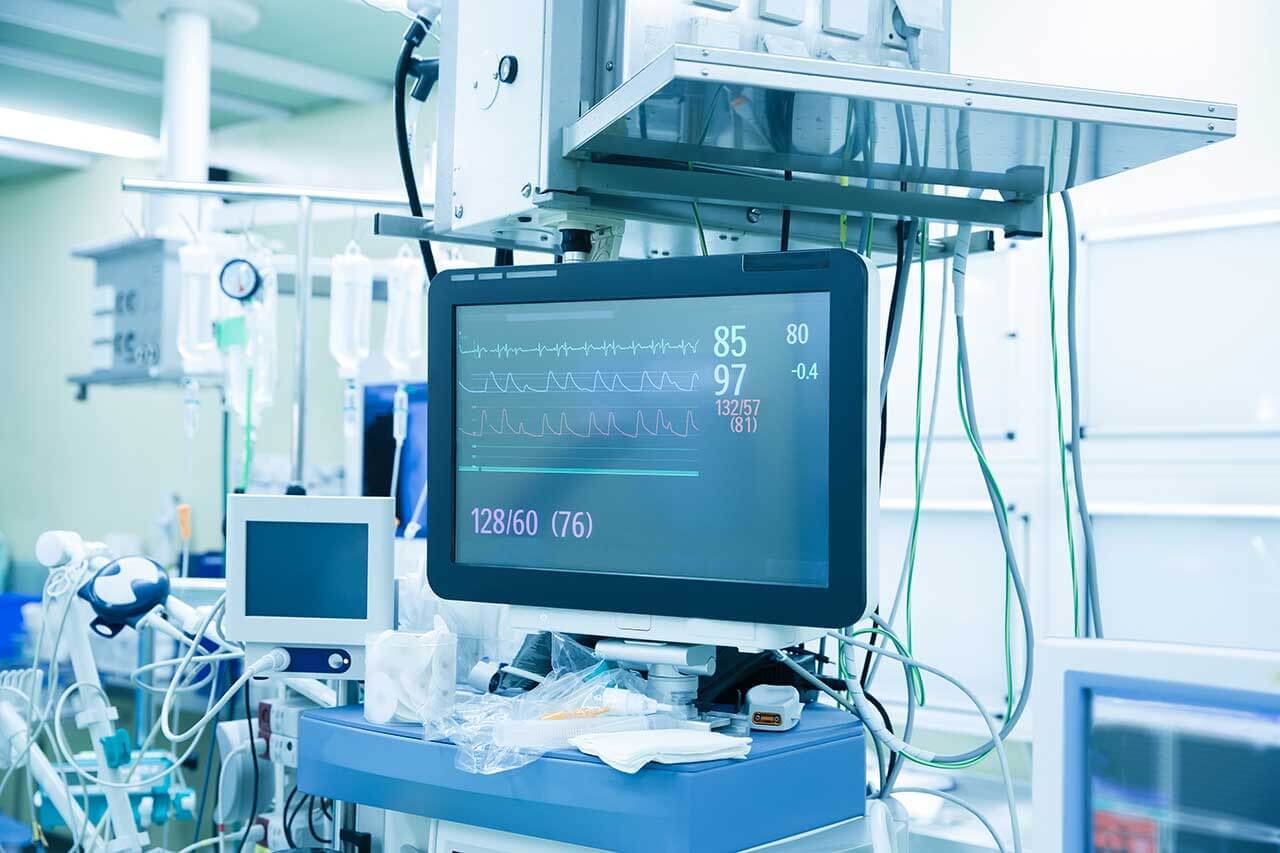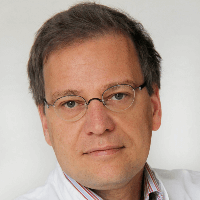
The program includes:
- Initial presentation in the clinic
- clinical history taking
- review of medical records
- physical examination
- laboratory tests:
- complete blood count
- biochemical analysis of blood
- thyroid function test (TSH-basal, fT3, fT4)
- mineral metabolism analysis (Na, K, Ca, Mg)
- lipid metabolism (HDL/LDL, cholesterol, triglycerides,
Lip(a), homocysteine) - iron content (ferritin, iron)
- blood coagulation analysis (aPTT, PT, INR)
- metabolic status (uric acid, total glucose, HbA1c)
- inflammatory parameters (CRP, ESR)
- cardiovascular disease risk markers
- lung function test (Spirometry)
- resting and exercise ECG
- Holter monitoring (24h)
- color doppler echocardiography
- color doppler sonography of cerebral vessels
- preparation according to preoperative standard
- Implantation of cardioverter- defibrillator
- symptomatic treatment
- control examinations
- the cost of essential medicines and materials
- nursing services
- full hospital accommodation
- explanation of future recommendations
- written statement
Required documents
- Medical records
- ECG (if available)
Service
You may also book:
 BookingHealth Price from:
BookingHealth Price from:
About the department
The Department of Cardiology, Angiology and Pulmonology at the University Hospital Rechts der Isar Munich offers the full range of modern diagnostics and treatment of cardiovascular diseases, pathological lesions of the arteries, veins and lymphatic vessels, as well as various respiratory diseases. It is worth noting that the department's cardiologists carry out not only drug therapy for heart diseases, but also many interventional procedures, including TAVI, MitraClip, left atrial appendage closure in case of atrial fibrillation, balloon valvuloplasty and many others. The interventional therapeutic procedures for diseases of the heart, arteries, veins and lymphatic vessels are performed in specially equipped catheterization laboratories. Of particular interest in the field of pulmonology are bronchoscopy, endoscopic lung volume reduction and lung cancer treatment in collaboration with thoracic surgeons, oncologists, radiation therapists and other physicians. The department's specialists give preference to an individual approach to each patient. They use only modern and reliable treatment methods that guarantee an optimal result. The department is headed by Prof. Dr. med. Karl-Ludwig Laugwitz.
The department has excellent diagnostic options for examining the cardiovascular system. The medical facility has diagnostic rooms with state-of-the-art devices for electrocardiography (ECG), including stress and long-term ECG, transthoracic echocardiography (3D, 4D), tissue Doppler echocardiography and speckle tracking echocardiography, transesophageal echocardiography (3D, 4D), contrast-enhanced echocardiography. In cooperation with the Department of Nuclear Medicine, cardiac CT and MRI, myocardial scintigraphy and cardiac PET/MRI are performed. After comprehensive diagnostics, the attending physician determines the optimal course of treatment – it can be drug therapy, surgical interventions, or a combination of these techniques. To perform interventional procedures on the heart and coronary arteries, the department is equipped with three progressive cardiac catheterization laboratories. Cardiologists perform interventional procedures for acute coronary syndrome, chronic coronary artery occlusion, left atrial appendage defect, aortic and mitral valve defects, severe heart failure and other pathologies. This treatment is an excellent alternative to classical cardiac surgery, which often requires thoracotomy. The use of minimally invasive catheter-based techniques allows the doctors to perform the necessary therapeutic manipulations on the heart, heart valves and coronary arteries through arterial or venous vascular access, with minimal trauma to the healthy tissues. Cardiac catheterization procedures are performed under local anesthesia, which is also of great benefit to patients.
The department's therapeutic offer also includes the diagnostics and treatment of diseases of the arteries, veins and lymphatic vessels. Depending on the complexity of the clinical case, the treatment can take place both on an inpatient and outpatient basis. The department's specialists most often admit patients with carotid artery stenosis, pelvic and lower limb artery stenosis, renal artery stenosis, acute deep vein thrombosis, chronic venous insufficiency, pulmonary embolism. The department's specialists successfully carry out balloon dilation, stent implantation, atherectomy, rotary endarterectomy, lithotripsy and other procedures.
Another important field of the department's clinical activity is pulmonology. The doctors of this medical profile admit patients with diseases of the respiratory system, mediastinum, pleural cavity and diaphragm. Particular attention is paid to performing interventions to remove small neoplasms in the chest. In addition, the department's pulmonologists are highly professional in the treatment of alpha-1-antitrypsin deficiency, pulmonary emphysema, interstitial lung diseases, pulmonary hypertension, allergic diseases and rare lung pathologies. The therapeutic spectrum includes drug therapy and various types of bronchoscopy, including laser treatment, stent implantation, and endoscopic lung volume reduction. The department also has an intensive care unit, where various types of non-invasive and invasive mechanical ventilation are performed.
The department specializes in the diagnostics and treatment of the following diseases:
- Cardiology
- Heart failure
- Myocardial infarction
- Acute coronary syndrome
- Aortic valve stenosis
- Mitral insufficiency
- Left atrial appendage defect
- Heart rhythm disturbances (arrhythmias)
- Atrial fibrillation
- Focal atrial tachycardia
- Atrioventricular nodal reentry tachycardia
- Wolff-Parkinson-White syndrome
- Ventricular extrasystoles
- Ventricular tachycardia
- Angiology
- Carotid artery stenosis
- Pelvic and lower limb artery stenosis
- Renal artery stenosis
- Acute deep vein thrombosis
- Chronic venous obstruction
- Subclavian artery stenosis
- Abdominal aortic stenosis
- Chronic venous insufficiency
- Pulmonary embolism
- Pulmonology
- Lung cancer
- Alpha-1 antitrypsin deficiency
- Pulmonary emphysema
- Interstitial lung diseases
- Pulmonary hypertension
- Allergic lung diseases, including severe forms of bronchial asthma
- Rare lung diseases
- Bronchiectasis
- Sarcoidosis
- Autoimmune diseases affecting the lungs
- Other pathologies
The department's range of medical services includes:
- Therapeutic options for heart disease
- Coronary artery balloon dilatation and stenting
- Transcatheter aortic valve implantation (TAVI) for the treatment of aortic valve stenosis
- MitraClip procedure for the treatment of mitral valve insufficiency
- Left atrial appendage closure
- Pacemaker and defibrillator implantation
- Cardiac resynchronization therapy
- Event recorder implantation
- Therapeutic options for diseases of the arteries, veins and lymphatic vessels
- Balloon dilation, percutaneous transluminal coronary angioplasty (PTCA)
- Stent implantation
- Removal of cholesterol plaques in the vessels (atherectomy)
- Vascular dilation with drug-coated stents
- Lysis therapy for acute venous thrombosis
- Catheter-directed lysis for acute pulmonary embolism
- Vein stenting for post-thrombotic syndrome
- Therapeutic options for respiratory diseases
- Bronchoscopy
- Stent implantation
- Endoscopic lung volume reduction
- Pleural interventions
- Removal of small neoplasms in the lungs and other organs of the respiratory system
- Other medical services
Curriculum vitae
University Education
- 2002 Habilitation, Technical University of Munich.
- 1996 Doctorate, Department of Pharmacology, Free University of Berlin.
- 1988 - 1994 Study of Human Medicine, Free University of Berlin.
Postgraduate Training
- 1996 - 2000 Junior Research Fellow in the Department of Cardiology, Angiology and Pulmonology at the University Hospital Rechts der Isar Munich.
Medical Practice
- Since 2012 Head Physician of the Department of Cardiology, Angiology and Pulmonology at the University Hospital Rechts der Isar Munich.
- Since 2006 W2 Professor, Technical University of Munich.
- Since 2005 Assistant Professor, Cardiovascular Research Center, Massachusetts General Hospital, Harvard Medical School, Boston, USA.
- Since 2000 Principal Investigator in the Department of Cardiology, Angiology and Pulmonology at the University Hospital Rechts der Isar Munich.
Awards, Honors and Scholarships
- 2005 Louis Katz Prize of the American Heart Association.
- 2004 AstraZeneca Award in Cardiology.
- 2002 - 2005 Heisenberg Scholarship of the German Research Foundation, Institute for Molecular Medicine, University of California, San Diego, USA.
- 1998 Merck Sharp Dhome Award in the field of Heart Failure.
- 1998 Scholarship of the Technical University of Munich.
- 1997 Rudolf Buchheim Prize of the German Pharmacological and Toxicological Society.
Main Clinical Focuses
- Treatment of myocardial infarction.
- Treatment of heart failure.
- Treatment of arrhythmias.
Memberships in Professional Societies
- Since 2010 Member of the Principal Investigator Group of the Munich Heart Alliance and the German Centre for Cardiovascular Research (DZHK).
- Since 2006 Member of the Harvard Stem Cell Institute (HSCI), Section for Cardiovascular Diseases, Harvard University, Cambridge, USA.
Photo of the doctor: (c) Klinikum rechts der Isar der Technischen Universität München
About hospital
The University Hospital Rechts der Isar Munich was founded in 1834. It combines long traditions with the very latest advances in modern medicine. The medical facility includes 33 specialized departments and 20 interdisciplinary centers, where patients can receive top-class medical care in all medical fields.
The hospital annually admits more than 65,000 inpatients for diagnostics and treatment, and about 250,000 outpatients receive effective medical care. The hospital also performs more than 40,000 surgical procedures every year, and about 2,100 babies are born here annually. One of the most significant achievements of the medical facility can be called the first transplantation of both arms above the elbow performed in 2008. The surgery that lasted 15 hours, and in which 40 doctors of various medical specialties took part, became a real sensation in the scientific world. Thanks to a unique surgical procedure, the doctors managed to give the patient new hands.
In addition, the employees of the hospital are actively involved in research activities, in which they study various diseases, as well as develop new therapeutic options for their treatment. It should be noted that the research institutes of the hospital are among the most reputable research organizations in the world. A striking example can be considered the Roman Herzog Comprehensive Cancer Center, whose specialists cooperate closely with the Comprehensive Cancer Center Munich in order to find new treatment methods for cancers.
The university hospital has a strict quality management system to maintain a high level of patient care. Since 2011, the hospital has been certified in accordance with DIN EN ISO 9001:2015 at the national and international level. The medical facility was also recertified by TÜV Rheinland in 2020.
The hospital annually provides medical services not only to German citizens, but also to thousands of patients from different countries of the world. This indicates that the hospital has an excellent reputation in the international medical arena and takes on the most complex clinical cases where other medical centers are unable to help the patient.
Photo: (с) depositphotos
Accommodation in hospital
Patients rooms
The patients of the University Hospital Rechts der Isar Munich live in comfortable single and double rooms with modern design. An accompanying person may stay with the patient in the single room. All patient rooms have an ensuite bathroom with shower and toilet. The furnishings of a standard patient room include an automatically adjustable bed, a bedside table for personal belongings, a table and chairs for receiving visitors, a wardrobe, a telephone and a TV. The patient rooms also have Wi-Fi.
The hospital also has enhanced-comfort rooms, corresponding to the level of a high-end hotel. Such patient rooms have additional amenities: a safe, a mini fridge and upholstered furniture.
Meals and Menus
The patients of the hospital are offered a balanced and healthy three meals a day: breakfast, lunch and dinner. The patients have a choice of three different menus for lunch – a classic full menu, as well as a dietary and vegetarian one. When cooking meals, the chefs comply with the current recommendations of the German Society for Nutritional Medicine (DGEM) and the German Nutrition Society (DGE).
If for some reason you do not eat all the foods, you will be offered an individual menu. The hospital also houses a cafeteria with a large assortment of hot and cold drinks, snacks and desserts.
Further details
Standard rooms include:
Religion
Religious services are available upon request.
Accompanying person
Your accompanying person may stay with you in your patient room or at the hotel of your choice during the inpatient program.
Hotel
You may stay at the hotel of your choice during the outpatient program. Our managers will support you for selecting the best option.
The hospital offers a full range of laboratory tests (general, hormonal, tests for infections, antibodies, tumor markers, etc.), genetic tests, various modifications of ultrasound scans, CT scans, MRI and PET / CT, angiography, myelography, biopsy and other examinations. Treatment with medications, endoscopic and robotic operations, stereotaxic interventions is carried out here, modern types of radiation therapy are also used. The hospital offers patients all the necessary therapeutic techniques.
- CAR T-cell therapy
- Autologous and allogeneic bone marrow transplantation
- Transcatheter aortic valve implantation (TAVI)
- Radical and organ-preserving interventions for kidney cancer
- Iridoplasty and iridotomy with Nd-YAG laser
These are acute and chronic leukemias, solid malignant tumors, heart failure, cardiac arrhythmias, heart valves stenosis and insufficiency, vasculitis, benign prostatic hyperplasia, pathologies of retina and vitreous body, Guillain-Barré syndrome, myasthenia gravis and other pathologies.
- Hematology and oncology
- Cardiology
- Nephrology
- Urology
- Ophthalmology
Over 877 highly qualified physicians work at the hospital.
